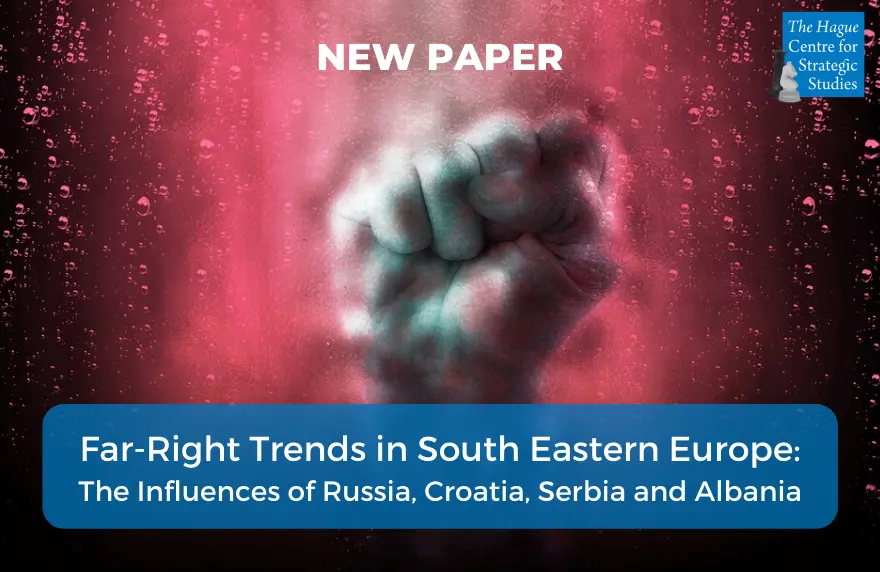New paper out now! To read, click here.
Far-right violent extremism is thriving in several parts of South East Europe (SEE), but despite its widespread influence, relatively little research has been done on its alarming reach. Therefore, this paper assesses the origin and perpetuation of far-right violent extremism in SEE and finds that the situation there uniquely facilitates the spread of far-right ideology, particularly in Kosovo, Bosnia and Herzegovina, and Serbia. Understanding this trend is extremely important for global security as SEE is a bridge between the East and West, and the politics there can affect the rest of Europe and its unifying institutions like the EU and NATO.
Both external and internal factors play a role in promoting far-right extremism in SEE. The biggest external source of destabilization in the region is due to the interference of Russia. Seeking to reduce SEE’s loyalty to the rest of Europe, Russia is using numerous strategies to stoke ethnonationalist passions and sow discord among neighboring nations. Russia benefits from a soft-power approach by appealing to common cultural aspects it shares with SEE. For instance, Russia takes advantage of a sense of shared Slavic identity to gain support among different peoples, particularly Serbians. Russia also uses the authority of the Orthodox church to appeal to the traditional values that are held in Serbia.
In addition to aligning itself with some SEE countries, Russia is also attempting to intensify internal divisions within SEE in order to weaken certain nations, which greatly increases the risk that there will be a resurgence of political instability in the region. For instance, in Bosnia and Herzegovina, Russia is attempting to cast Muslims as dangerous fundamentalists, thus encouraging Islamophobia and intensifying ethnic tensions in the country, leading to reciprocal radicalization that popularizes far-right attitudes. Similar claims are made against Muslims in Kosovo in an effort to undermine the state’s efforts to be internationally recognized as a sovereign nation. Anti-Western disinformation campaigns and propaganda disseminated in the media contribute to Russia’s influence, and these messages are also spread by political elites in SEE who are sympathetic to the Russian cause. Meanwhile, government officials who oppose the far right are hesitant to speak out against it. Thus, state institutions in countries like Serbia and Croatia tacitly accept far-right attitudes, in part because ethnonationalism is already entangled with government policies.
There are also numerous paramilitary organizations that contribute to the rise of the far right. Russia has a presence in SEE in the form of the Night Wolves motorcycle gang as well as by supporting the Serbian/Balkan Cossacks Army and so-called patriotic military training camps for youths. SEE soldiers are also sometimes invited to train in Russia. This support goes both ways, as numerous Serbians went to Ukraine to assist Russian paramilitary forces there. Overall, Russia is employing both soft- and hard-power efforts in SEE in order to reawaken ethnic tensions, weaken loyalty to the rest of Europe, and foster traditional and far-right attitudes that push SEE away from Western Europe and towards Russia. The rise of the far right in SEE is therefore a matter of great concern for global security, particularly for how it may affect the strength of European institutions.
To download and read the new paper by Arlinda Rrustemi, click here.




